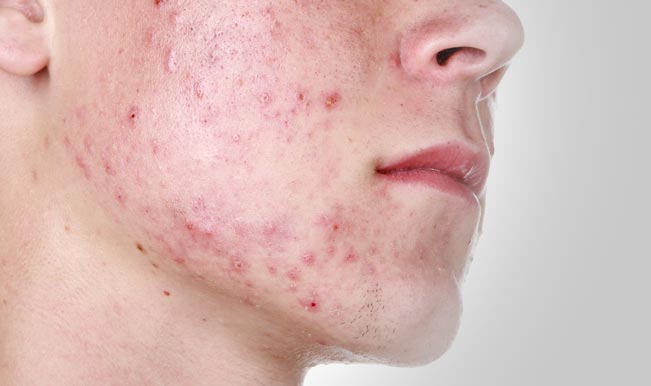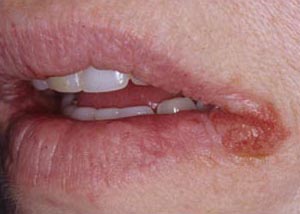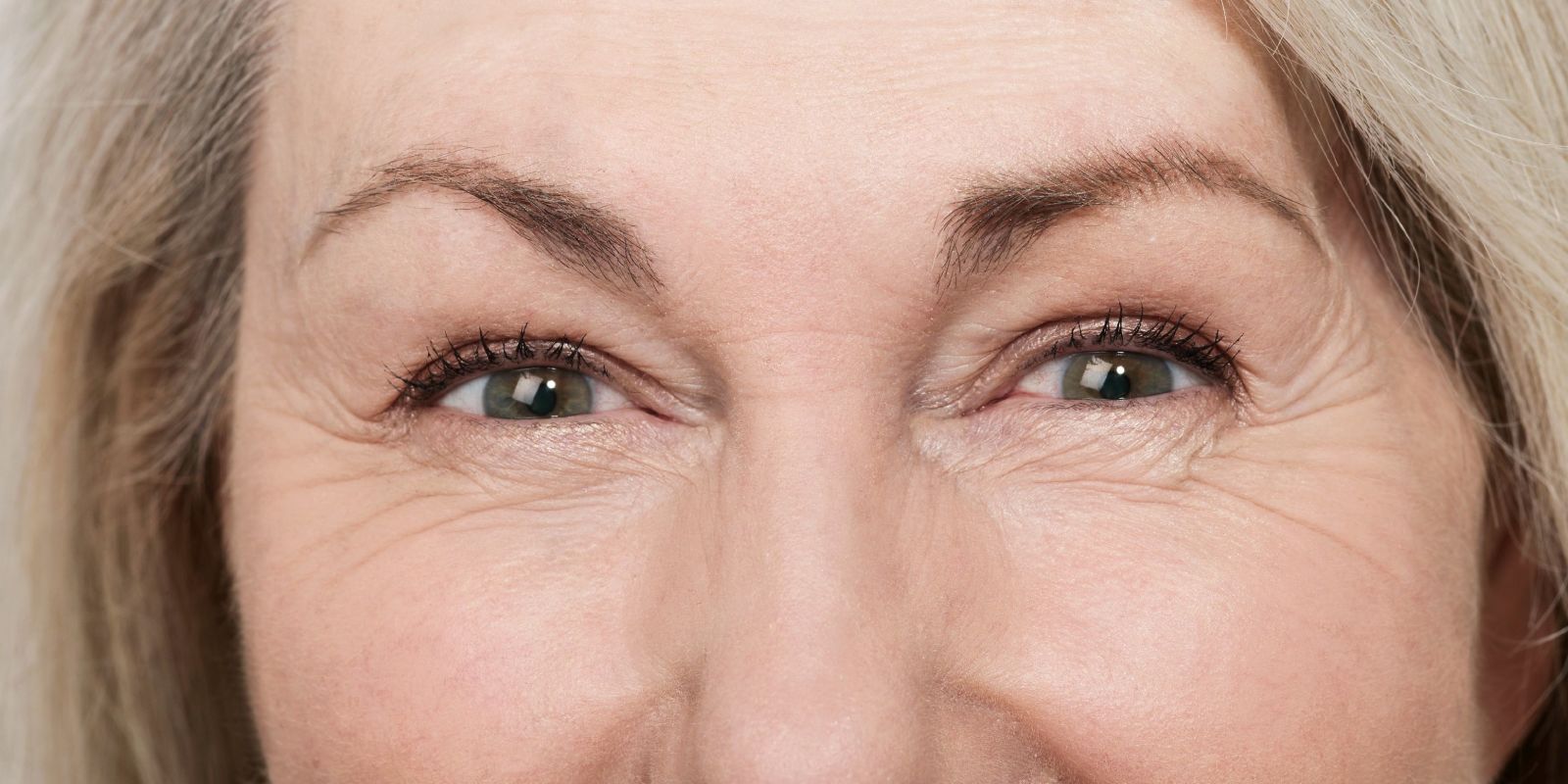
Sometimes we get very strange signs on our body but seem not to understand what it might be signifying. some are just normal since we're humans, but many others should be taken into serious consideration by seeing a physician.
For example: Waking up to pimples speckling your face isn’t how anyone wants to start the day. And while it’s tempting to grab the medicated soap as a quick fix, it may be worth getting a second opinion. What if those pimples are a sign of a deeper health issue — a food sensitivity, for example, or a deficiency in vitamin A, zinc or omega-3s? Here is a list of common beauty blunders that could be caused by an underlying health issue. We also include integrative approaches for fixing the root of the problem.
UNWANTED FACIAL HAIR
 For women, unwanted facial hair could be sign of a hormonal imbalance resulting from an overproduction of androgens, the hormones made by the gonads and adrenal glands. Or it could be a sign of polycystic ovarian syndrome (PCOS), particularly when accompanied by irregular or missing menstrual cycles. Before booking your next appointment to be waxed, see a doctor who knows how to balance hormones naturally, suggests Dr. Trevor Cates, N.D., the first licensed female naturopathic doctor in California and author of “Clean Skin From Within.” Additionally, herbal supplements like chasteberry and saw palmetto could also help counteract excess androgens, she says.
For women, unwanted facial hair could be sign of a hormonal imbalance resulting from an overproduction of androgens, the hormones made by the gonads and adrenal glands. Or it could be a sign of polycystic ovarian syndrome (PCOS), particularly when accompanied by irregular or missing menstrual cycles. Before booking your next appointment to be waxed, see a doctor who knows how to balance hormones naturally, suggests Dr. Trevor Cates, N.D., the first licensed female naturopathic doctor in California and author of “Clean Skin From Within.” Additionally, herbal supplements like chasteberry and saw palmetto could also help counteract excess androgens, she says.ACNE BREAKOUTS

Though it varies from case to case, one potential cause of an acne breakout could be your diet. According to Kate Kanner, RDN, LD, there is some research showing that acne decreases when following a low glycemic index diet, which involves cutting out white flour, sugar and processed foods and boosting your intake of vegetables and whole grains. Dairy could also be a contributor to acne because it could be linked with increased sebum, the oily substance secreted by the sebaceous glands that prevents skin dryness.
DARK UNDER-EYE CIRCLES
 Lack of sleep
shouldn’t get the full blame for those dark circles under your eyes. Also
called “allergic shiners,” dark eye circles are often an indication that you’re
eating foods your body finds toxic, says Dr. Cates. “Try cutting out the most
common food allergens, such as dairy, gluten and eggs, for 10 days to see if
these diminish,” she suggests. If that proves unsuccessful, she recommends
having allergy tests done to see if environmental sensitivities like mold, pet
dander or pollen could be causing your under-eye reactions.
Lack of sleep
shouldn’t get the full blame for those dark circles under your eyes. Also
called “allergic shiners,” dark eye circles are often an indication that you’re
eating foods your body finds toxic, says Dr. Cates. “Try cutting out the most
common food allergens, such as dairy, gluten and eggs, for 10 days to see if
these diminish,” she suggests. If that proves unsuccessful, she recommends
having allergy tests done to see if environmental sensitivities like mold, pet
dander or pollen could be causing your under-eye reactions.
PATCHES OF TINY PIMPLES
 Patches of white or
red bumps can easily be mistaken for tiny pimples and treated as such. But
they’re actually known as keratosis pilaris, a skin condition that occurs when
you’re not getting enough essential fatty acids, zinc and/or vitamin A, says
Dr. Cates. “To help your skin maintain a healthy oil barrier, be sure to
consume essential fatty acids like omega-3 from wild salmon. And add in some
pumpkin seeds, flaxseed, grass-fed beef and kidney beans to boost your intake
of zinc. Vitamin A-rich foods include sweet potatoes and dark green leafy
vegetables,” she says. Note that these bumps also tend to pop up on the backs
of arms, the buttocks and the thighs.
Patches of white or
red bumps can easily be mistaken for tiny pimples and treated as such. But
they’re actually known as keratosis pilaris, a skin condition that occurs when
you’re not getting enough essential fatty acids, zinc and/or vitamin A, says
Dr. Cates. “To help your skin maintain a healthy oil barrier, be sure to
consume essential fatty acids like omega-3 from wild salmon. And add in some
pumpkin seeds, flaxseed, grass-fed beef and kidney beans to boost your intake
of zinc. Vitamin A-rich foods include sweet potatoes and dark green leafy
vegetables,” she says. Note that these bumps also tend to pop up on the backs
of arms, the buttocks and the thighs.
CRACKED LIPS
 A perpetual battle
with cracked lips likely has more to do with your diet than your brand of lip
balm. “It could be a symptom of inadequate dietary niacin or zinc intake,” says
Kanner. Vegans and vegetarians might have the most experience with this issue because
high concentrations of niacin and zinc are found in animal products like
chicken, liver and fish. For plant-based sources, incorporate more chickpeas
and pumpkin seeds for zinc and more peanuts and mushrooms for niacin, she
suggests.
A perpetual battle
with cracked lips likely has more to do with your diet than your brand of lip
balm. “It could be a symptom of inadequate dietary niacin or zinc intake,” says
Kanner. Vegans and vegetarians might have the most experience with this issue because
high concentrations of niacin and zinc are found in animal products like
chicken, liver and fish. For plant-based sources, incorporate more chickpeas
and pumpkin seeds for zinc and more peanuts and mushrooms for niacin, she
suggests.
BLISTERS AT THE CORNERS OF THE MOUTH
 If cracks and blisters
seem to be permanent fixtures on the corners of your mouth, it’s another
dietary concern. According to Dr. Cates, any cracking, blistering or crusting
in this area is a sign of iron and vitamin B deficiencies, especially B-2 and
B-12. Not to panic: It’s both common and simple to correct, necessitating a
boost in iron- and vitamin B-rich foods, such as dark green leafy vegetables,
beans, free-range chicken and grass-fed beef, she says. Furthermore, to ensure
your body gets the maximum absorption of iron and vitamin B from these “said
comestibles”, pair them with fiber-rich legumes and vegetables or
enzyme-containing foods like papaya.
If cracks and blisters
seem to be permanent fixtures on the corners of your mouth, it’s another
dietary concern. According to Dr. Cates, any cracking, blistering or crusting
in this area is a sign of iron and vitamin B deficiencies, especially B-2 and
B-12. Not to panic: It’s both common and simple to correct, necessitating a
boost in iron- and vitamin B-rich foods, such as dark green leafy vegetables,
beans, free-range chicken and grass-fed beef, she says. Furthermore, to ensure
your body gets the maximum absorption of iron and vitamin B from these “said
comestibles”, pair them with fiber-rich legumes and vegetables or
enzyme-containing foods like papaya.
THIN EYEBROWS
 If your eyebrows —
especially the outer third sections — are thinning more and more, it could be a
sign of an underactive thyroid, says Dr. Cates, meaning your hormone levels are
imbalanced. A few other signs of an underactive thyroid include dry skin, weight
gain, constipation or fatigue. Speak with a doctor about having thyroid tests
done. If it’s deemed underactive, work with a professional who can provide
individualized support for hormone balance, says Dr. Cates.
If your eyebrows —
especially the outer third sections — are thinning more and more, it could be a
sign of an underactive thyroid, says Dr. Cates, meaning your hormone levels are
imbalanced. A few other signs of an underactive thyroid include dry skin, weight
gain, constipation or fatigue. Speak with a doctor about having thyroid tests
done. If it’s deemed underactive, work with a professional who can provide
individualized support for hormone balance, says Dr. Cates.
PALE SKIN
 Though you’ve always
been quick to credit your Irish heritage for your pale skin, it might be worth
double-checking if that’s actually the reason. Another potential reason?
Anemia, which is caused by a vitamin B-12, B-6, folate and/or iron deficiency,
says Dr. Cates. “This is more common in people eating a vegan diet or who have
impaired digestion and absorption or who are taking certain medications, such
as antacids and metformin,” she says. Have some blood work done to test for
anemia and nutritional deficiencies, and in the meantime increase your intake
of dark green leafy vegetables, beans, free-range chicken and grass-fed beef.
Though you’ve always
been quick to credit your Irish heritage for your pale skin, it might be worth
double-checking if that’s actually the reason. Another potential reason?
Anemia, which is caused by a vitamin B-12, B-6, folate and/or iron deficiency,
says Dr. Cates. “This is more common in people eating a vegan diet or who have
impaired digestion and absorption or who are taking certain medications, such
as antacids and metformin,” she says. Have some blood work done to test for
anemia and nutritional deficiencies, and in the meantime increase your intake
of dark green leafy vegetables, beans, free-range chicken and grass-fed beef.
SKIN DRYNESS
 Though there’s often a
correlation between dry skin and dehydration, drinking more water may not be
the best (or only) solution for your skin. For those with eczema or dermatitis,
increasing intake of polyunsaturated fats, such as omega-3 fatty acids or gamma-linolenic
acid (an omega-6 fatty acid), may prove successful because they aid the skin
cells’ ability to retain moisture, says Kanner. As far as any flaky skin, a
niacin deficiency may be the reason.
Though there’s often a
correlation between dry skin and dehydration, drinking more water may not be
the best (or only) solution for your skin. For those with eczema or dermatitis,
increasing intake of polyunsaturated fats, such as omega-3 fatty acids or gamma-linolenic
acid (an omega-6 fatty acid), may prove successful because they aid the skin
cells’ ability to retain moisture, says Kanner. As far as any flaky skin, a
niacin deficiency may be the reason.
WRINKLES
 While we can’t avoid
the aging process, we may be able to control how soon those wrinkles start
popping up. If you have premature wrinkles, take note: Research has found a
connection between poor vitamin C intake and the likelihood of developing
wrinkles. “Not only is vitamin C an antioxidant, it is also involved in the
formation of collagen, a structural protein that forms the skin matrix,” says
Kanner. Another study suggests that a collagen supplement may also decrease
skin dryness and wrinkles, though more research may be needed to verify that,
she notes. But you can’t go wrong ensuring your vitamin C intake is up to par,
which means consuming more papaya, bell peppers, broccoli, strawberries and
pineapple.
While we can’t avoid
the aging process, we may be able to control how soon those wrinkles start
popping up. If you have premature wrinkles, take note: Research has found a
connection between poor vitamin C intake and the likelihood of developing
wrinkles. “Not only is vitamin C an antioxidant, it is also involved in the
formation of collagen, a structural protein that forms the skin matrix,” says
Kanner. Another study suggests that a collagen supplement may also decrease
skin dryness and wrinkles, though more research may be needed to verify that,
she notes. But you can’t go wrong ensuring your vitamin C intake is up to par,
which means consuming more papaya, bell peppers, broccoli, strawberries and
pineapple.

No comments:
Post a Comment